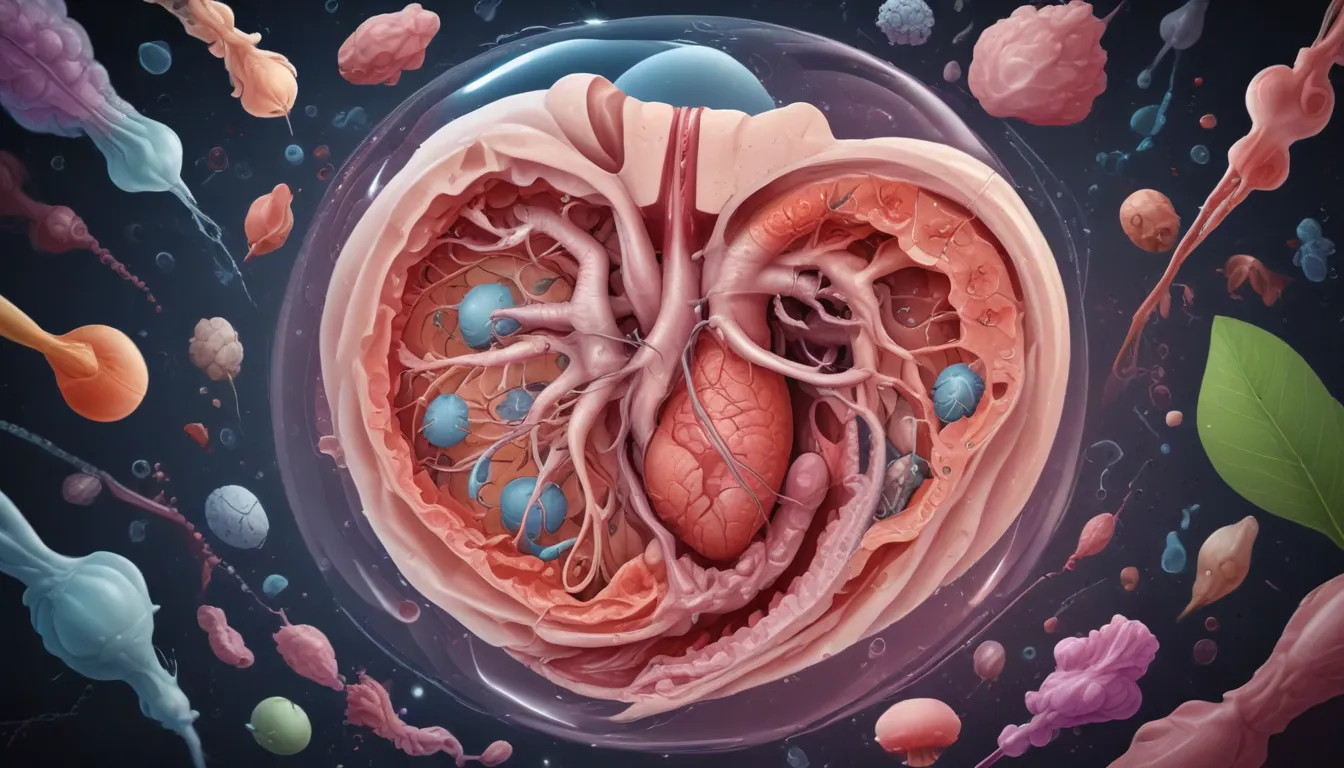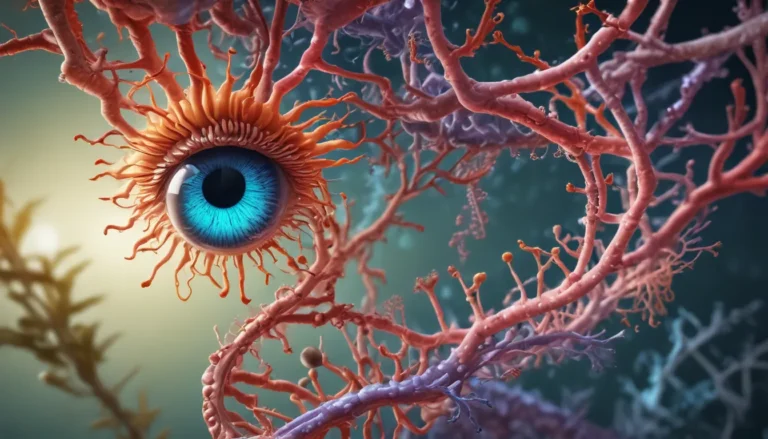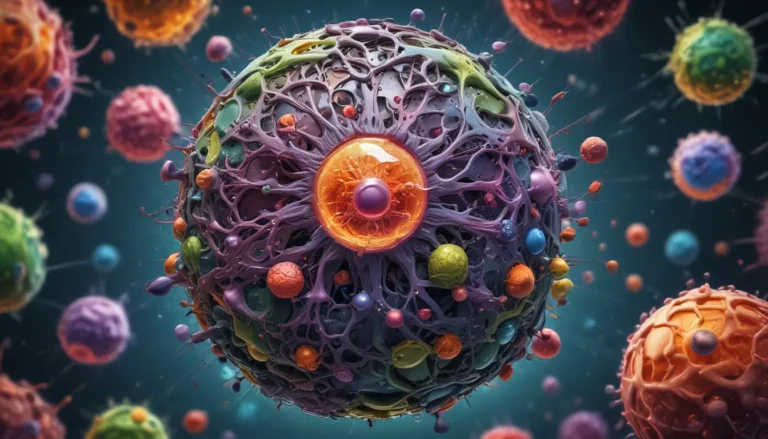A Note About Images: The images used in our articles are for illustration purposes only and may not exactly match the content. They are meant to engage readers, but the text should be relied upon for accurate information.
Are you curious about the groundbreaking advancements in reproductive technologies that have revolutionized the way we approach fertility and conception? From the first successful IVF birth to the ethical implications of assisted reproduction, there are countless surprising facts to uncover. Join us as we delve into the world of reproductive technologies, shedding light on the science behind these techniques and exploring the possibilities they offer for individuals and couples struggling with infertility.
Unlocking Hope with Reproductive Technologies
Reproductive technologies, such as in vitro fertilization (IVF) and egg freezing, have expanded family-building options and provided solutions for couples facing challenges with infertility. These cutting-edge techniques have not only offered hope but also improved our understanding of fertility, paving the way for new possibilities in assisted reproduction.
The Birth of IVF: A Milestone in Reproductive Medicine
In 1978, the world witnessed a historic moment when Louise Brown, the first “test-tube baby,” was born in the United Kingdom through IVF. This groundbreaking achievement marked a significant milestone in the field of reproductive technologies, opening doors for individuals and couples who were previously unable to conceive naturally.
Welcome to the Future: Family-Building Options for Same-Sex Couples
Thanks to advancements in reproductive technologies, same-sex couples now have the opportunity to build their families through donor insemination or surrogacy. These innovative techniques have allowed LGBTQ+ individuals to experience the joys of parenthood and create their own family narratives.
Ethical Considerations and Legal Implications
While reproductive technologies offer hope and solutions, they also raise ethical and legal questions surrounding issues such as ownership of embryos, genetic selection, and the rights of surrogate mothers. These complex debates continue to shape the landscape of assisted reproduction, highlighting the need for careful consideration and thoughtful decision-making.
The Role of Donors: A Crucial Contribution to Assisted Reproduction
Sperm and egg donors play a vital role in reproductive technologies, providing the genetic material necessary for assisted reproductive treatments. Their selfless contributions enable individuals and couples to fulfill their dreams of parenthood, highlighting the invaluable role of donors in the process of assisted reproduction.
Empowering Choices: Fertility Preservation and Genetic Screening
In today’s world, advancements in reproductive technologies have empowered individuals to make informed decisions about their reproductive health. Techniques such as egg freezing and preimplantation genetic testing (PGT) offer options for fertility preservation and screening for genetic diseases, giving individuals greater control over their reproductive futures.
The Rise of Egg Freezing: Preserving Fertility for Tomorrow
With the evolution of technology, women now have the option to freeze their eggs for future use, allowing them to preserve their fertility and extend their reproductive potential. This empowering choice gives women the flexibility to pursue motherhood when the timing is right for them, highlighting the transformative impact of reproductive technologies on family planning.
Genetic Screening: Minimizing Genetic Risks Through PGT
Preimplantation Genetic Testing (PGT) is a cutting-edge technique used to identify genetic abnormalities in embryos before implantation during IVF. This innovative screening process helps minimize the risk of passing on genetic diseases to future generations, emphasizing the importance of proactive genetic screening in assisted reproduction.
Building Families: The Impact of Surrogacy and Multiple Births
Surrogacy has emerged as a transformative option for individuals or couples who are unable to carry a pregnancy themselves, offering them the opportunity to have a child genetically related to them. Additionally, the use of reproductive technologies, such as IVF, can increase the likelihood of multiple births, leading to the joy of twins, triplets, or even higher-order multiples for many aspiring parents.
Beyond Borders: The Global Reach of Reproductive Technologies
Reproductive technologies have transcended geographical boundaries, offering solutions for infertility and reproductive challenges to individuals and couples worldwide. With ongoing research and development, the field of assisted reproduction continues to evolve, providing new techniques and treatments to enhance success rates and expand options for family-building.
Navigating the Landscape of Reproductive Health
As we navigate the complex terrain of reproductive health and assisted reproduction, it is essential to consider the ethical, legal, and emotional implications of reproductive technologies. By staying informed, seeking guidance from healthcare professionals, and engaging in open conversations about the impact of these techniques, individuals and couples can make empowered decisions that align with their values and aspirations.
Exploring the Future of Reproductive Technologies
Looking ahead, the future of reproductive technologies holds endless possibilities, from advancements in embryo selection techniques to the potential of gene editing. As science continues to push boundaries in the realm of fertility and reproduction, it is crucial to prioritize the ethical and responsible use of these technologies to ensure the well-being of individuals and families.
Frequently Asked Questions:
- How successful are reproductive technologies in achieving pregnancy?
-
Success rates vary based on age, fertility issues, and the specific technology used. Consult with a fertility specialist for personalized information.
-
Are reproductive technologies safe for both the mother and the baby?
-
Like any medical procedure, reproductive technologies carry potential risks. Discuss these risks with your healthcare provider for a comprehensive understanding.
-
Are there ethical concerns associated with reproductive technologies?
-
Reproductive technologies raise important ethical considerations, such as multiple pregnancies and genetic screening. Talk to your healthcare provider to explore the ethical implications.
-
Are reproductive technologies only for couples struggling with infertility?
-
Reproductive technologies can benefit a wide range of individuals with various reproductive health concerns. Consult with a healthcare professional to determine the right options for you.
-
Are reproductive technologies covered by insurance?
- Coverage for reproductive technologies varies by insurance provider and treatment. Contact your insurance provider to understand your coverage options for assisted reproduction.
In conclusion, the world of reproductive technologies is filled with awe-inspiring advancements and life-changing possibilities. As we continue to explore the frontiers of fertility and reproduction, it is essential to approach these technologies with knowledge, empathy, and ethical consideration. By embracing the transformative potential of reproductive technologies while respecting the complexities they entail, we can pave the way for a future where assisted reproduction serves as a beacon of hope and empowerment for all.






